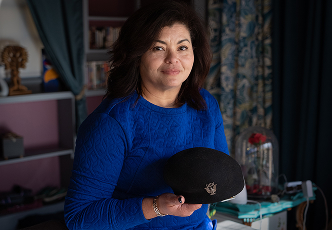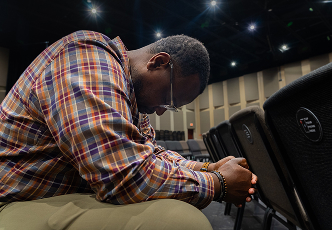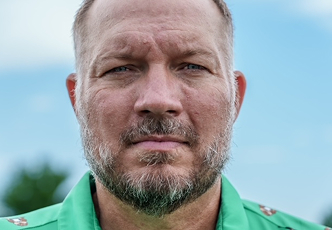Military Sexual Trauma (MST)
If you experienced sexual assault or sexual harassment while serving in the military, healing is possible. Hear Veterans’ stories and find out how treatment has changed their lives.
What is military sexual trauma (MST)?
Military sexual trauma, or MST, is sexual assault or sexual harassment that Veterans experienced while serving in the military. MST includes any sexual activity that happened against your will or without your consent.
Here are just a few examples:
- Someone pressured or manipulated you into having sex
- Someone forced you to have sex
- Someone touched you in a sexual way when you didn’t want them to, or when you weren’t able to say “no” — for example, when you were asleep, when you had been drinking, or during hazing
- Someone made repeated comments about your body or sexual activities in a way that made you uncomfortable
MST can happen to anyone, of any race, age, gender, or sexual orientation. And it affects every Veteran who has been through it differently. Even years later, MST can show up in your life in different ways, affecting your emotions, your relationships, and your health.
No matter what you experienced, or how long it’s been, MST doesn’t have to control your life. With treatment, you can heal from the effects of MST. Learn how VA can help.
Therapy really helped me understand that it really wasn’t my fault.”
Laura Hendrixon (US Marine Corps, 2003-2007) explains how therapy has changed her perspective.
I don’t feel like my head’s gonna burst, or I’m gonna explode.”
Richard Adams (US Navy, 1971-1972) shares how treatment has helped him manage his emotions.
How MST can affect your life
While every Veteran’s story is different, there are some common themes that connect many Veterans’ experiences after MST.
Many Veterans struggle with feelings of anger, guilt, shame, anxiety, or sadness — even years later. Disturbing, vivid memories can come up suddenly and repeatedly, and nightmares can make it hard to get a good night’s sleep. Some people use alcohol or drugs as a way to deal with these powerful memories and emotions.
MST can also make it hard to build and maintain relationships. After experiencing MST, it’s common to have a hard time trusting others and feeling safe in relationships. This can lead to conflict with family, friends, and coworkers — or just feeling isolated or alone.
Veterans who’ve experienced MST are more likely to develop some types of mental health concerns, including posttraumatic stress disorder (PTSD), depression, and anxiety. Some people may also have physical health problems like headaches, stomachaches, or chronic pain.
If the effects of MST are causing problems in your daily life or relationships, treatment can help — whether or not you have PTSD.
My relationships were severely distorted.”
Eddie Statsmann (US Army, 1987-1990) explains how the effects of MST caused problems in many aspects of his life.
I never felt safe.”
Yvonne Grissett (US Army, 1982-1986) shares how PTSD symptoms related to MST affected her daily life.
Choosing to talk about your experience
MST can be isolating — sometimes, it can feel like you’re the only person in the world who has been through it. Some Veterans blame themselves or feel like they should have done things differently to prevent it.
These feelings can make it hard to talk about what you’ve been going through. It’s also common to worry about what others will think of you if they know about the MST.
Though it can be hard at first, many Veterans who choose to share even a part of their story say they feel relieved after opening up to the right person — like a therapist, or a supportive family member or friend.
Some Veterans say they feel lighter, like the secret they carried for so long isn’t weighing them down anymore. And the support of family, friends, and professionals can help Veterans to heal and move forward with their lives.
It felt good to be believed and just to give it to somebody else.”
Laura Wright (US Army, 1984-1997) says she found relief after telling her therapist about her experience.
That first time of having the words come out was the scariest.”
Steve Connor (US Navy, 1977-1979) thought he'd figured it all out — until he shared his experience with a therapist.
Healing is possible — and treatment can help
MST may be a part of your story, but it doesn’t have to be your whole story. Through treatment, you can learn to manage the effects of MST in your daily life.
VA offers free treatment for mental and physical health conditions related to MST, including PTSD. You don’t have to show proof that you experienced MST, and you may be able to get MST-related treatment even if you don’t qualify for other VA care.
Evidence-based treatment can help Veterans process and deal with the effects of any kind of trauma, including MST. Learn more about different types of evidence-based treatments.
MST survivors can also benefit from therapy groups, which offer a chance to learn new coping skills and connect with other Veterans who’ve gone through similar experiences.
The most important thing to remember is that it’s possible to heal from the effects of MST. Treatment works, and it’s worth it!
I just smile, that I find joy in life again.”
Michael Corso (US Navy, 1982-1986) shares how he has built stronger relationships with loved ones.
Don’t wait forty years. Don’t wait four years.”
Nina Whittam (US Air Force, 1953-1954) encourages other Veterans to get help and speak up about their experience.
Hear Veterans’ stories
Find out how MST has affected other Veterans — and how treatment has made a positive change in their lives.
I knew I wasn't the only one
Steve Connor
US Navy 1977-1979
I matter
Yvonne Grissett
US Army 1982-1986
I thought it was my fault all these years
Laura Wright
US Army 1984-1997
My thoughts ate me up
Eddie Statsmann
US Army 1987-1990
I cannot be this person
Laura Hendrixon
US Marine Corps 2003-2007
I made it
Richard Adams
US Navy 1971-1972
I Have Great Friends
Penny Anderson
US Army 1996-2013
I Enjoy Being Out In Public
Teresa Silver
US Army 2008-2013

Want to learn more about MST?
Check out these videos featuring Veterans who have experienced MST and PTSD.
Ready to take the next step?
Read more about MST
Learn more about the effects of MST and how Veterans can get help through VA.
Get help for PTSD
Take a PTSD self-assessment and find out how to connect with a treatment provider.


